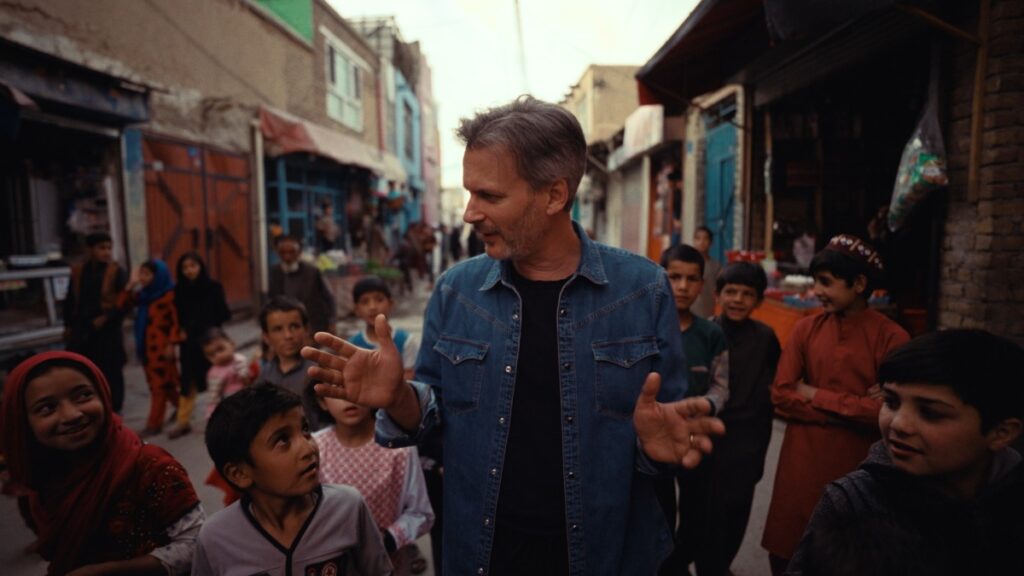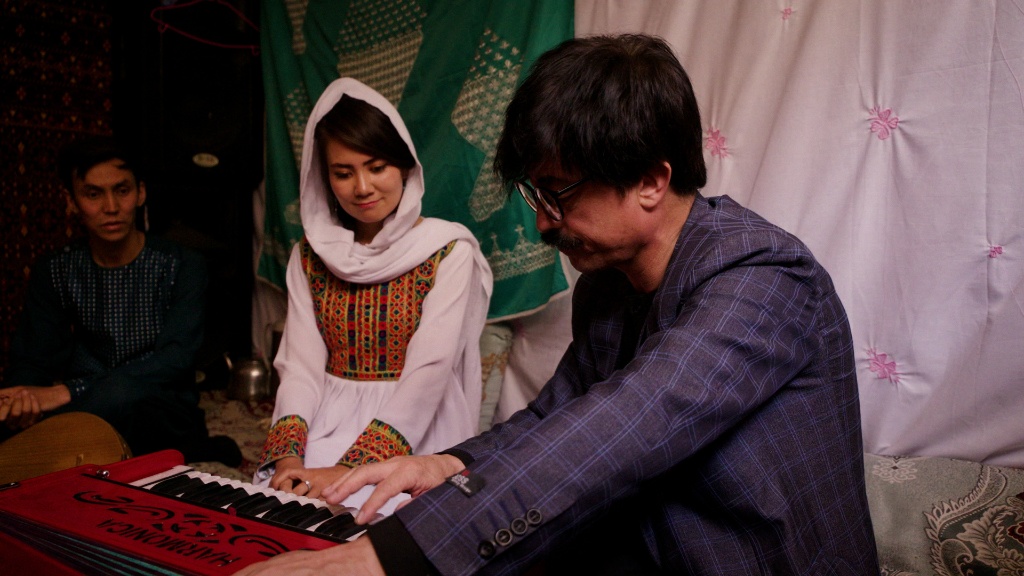In his latest documentary series, Dutch journalist Thomas Erdbrink visits Kucha-ye Kharābāt, a neighborhood in the Afghan capital of Kabul, where many musicians used to live. Now that they are persecuted by the Taliban regime, their music has become a means of protest. I see a parallel with the Persian poetic tradition in which the kharābāt (“winehouse,” lit. “ruins”) also serves as a center of critique targeting the orthodox Islam of those in power, including through music.
In my previous blog I discussed a counter-protest song in which Afghan women warned against the ongoing protests in Iran. I shared my suspicion that the song was not produced by the Afghan “girls next door,” (as they referred to themselves), arguing instead that the Iranian fundamentalist regime was responsible. Recently, journalist Thomas Erdbrink has shown some great examples of how Afghans do use music to protest, but in this case against the new fundamentalist Taliban regime at home. In his newest impressive TV documentary series Onze Man bij de Taliban (“Our Man at the Taliban”) (2023) on Dutch public broadcaster NPO, he tells the stories of different Afghan individuals before the sudden withdrawal of Western troops in August 2021 and under the Taliban regime that followed.

Erdbrink, who lived and worked in Iran for two decades, sees plenty of parallels between the two countries. Both have a recent history of violence and repression, including against music, which is often forbidden by fundamentalist Muslim groups. Musicians in Iran have had to deal with repression, persecution, and destruction of instruments ever since the 1979 revolution. In Afghanistan, it began during the first Taliban regime in 1996. Now that the Taliban are back in power, similar restrictions are being enforced – as Erdbrink aptly puts it, it’s the same old story (or “song” to stick to the Dutch).
But, just like Iranians, Afghans actively choose to protest through music. We see this when Erdbrink visits Kucha-ye Kharābāt, a neighborhood in Kabul. Almost all the city’s musicians live in this district. There were also music stores, but when the Taliban seized power, they immediately closed the stores and destroyed the instruments. One man tells Erdbrink that the neighborhood has existed for over 500 years, and that there is no life without music for them. That is why brave men and women still make music in Kharābāt secretly, behind closed doors and soundproofed walls. They declare that if they stop making music and do as they are told, the enemy wins. This makes Kharābāt a place of resistance, where people are critical of the regime’s brand of Islam.

Those familiar with Persian poetry will not be surprised by the name of the neighborhood: in one of the most popular genres, the kharābāt (usually translated as “winehouse,” literally “ruins”) plays the leading role. In the imaginary topography of this poetry, the kharābāt forms a whole separate world, somewhere on the outskirts of the city. This world consists of winehouses or even ruins. Here, everything that God has forbidden takes place: handsome Christian or Zoroastrian young men, who are also paid for sex, serve wine; people gamble away all earthly possessions and dance into the night – all accompanied by music of course. The revelers criticize none other than God himself, as well as the orthodox Islamic faith. In these poems, it is exactly these critical drunkards who are the good guys and they are not shy about their opinions on the bad guys – the orthodox clerics and rulers. Here, the walls are not soundproof. The poetic worlds of the normative urban center and the heterodox dilapidated winehouse form a stark contrast. The poet teaches his audience about his vision on Islam via the interplay between the two – and he is always on the side of the scandalous vagabonds.
The aim of these vagabonds was to hide their piety from the outside world and to provoke criticism from the orthodox Muslim majority and its clergy. In this way, they avoided the pitfall of hypocrisy in the faith: if the majority of the city believes you are an infidel par excellence, you do not run the risk of pretending to be more pious than you really are for earthly gain. You purify your faith of hypocrisy, as it were, because the harsh criticism forces you to truly be religious only out of your love for God. In fact, these wild types are not far removed from God, but very close to Him.
This poetry originated in the oeuvre of the 12th century poet Ḥakīm (“The Sage”) Sanāʾī (d. 1131) from the city of Ghazna, south of Kabul. The genre of his poetry became very popular over time: in a large area from the Balkans to Bengal, countless poets have imitated him and given their own twist to this poetry. In our research project Beyond Sharia: the Role of Sufism in Shaping Islam, our team investigates different aspects of this tradition and how it influences Islam in the contemporary Persian world. In my dissertation, I investigate none other than The Sage himself, so I will frequently discuss the kharābāt in the coming years.
You can therefore understand my enthusiasm when Erdbrink showed the Kharābāt of Kabul to the Dutch public. It is an interesting example of how a piece of Sanāʾī’s imaginary topography lives on in the urban topography of the real Kabul – the quintessential place from which to criticize the appalling interpretation of Islam espoused by the newest rulers. It is not only the same old story (or song) being sung in Tehran and Kabul today, as Erdbrink shows, but also across time and space, from 12th century Ghazna, from the Balkans to Bangladesh, to today’s Kabul – a history filled with brave poets and musicians.
For a Dutch version of this blog click here.
Image Credits
“Over de Afleveringen,” Onze Man bij de Taliban, VPRO, accessed April 14, 2023, https://www.vpro.nl/programmas/onze-man-bij-de-taliban/afleveringen.html
© Alexandra Nieweg and the Beyond Sharia ERC Project, 2023. This project has received funding from the European Research Council (ERC) under the European Union’s Horizon 2020 research and innovation programme (Grant agreement No. 101020403). Any unlicensed use of this blog without written permission from the author and the Beyond Sharia ERC Project is prohibited. Any use of this blog should give full credit to Alexandra Nieweg and the Beyond Sharia ERC Project.

